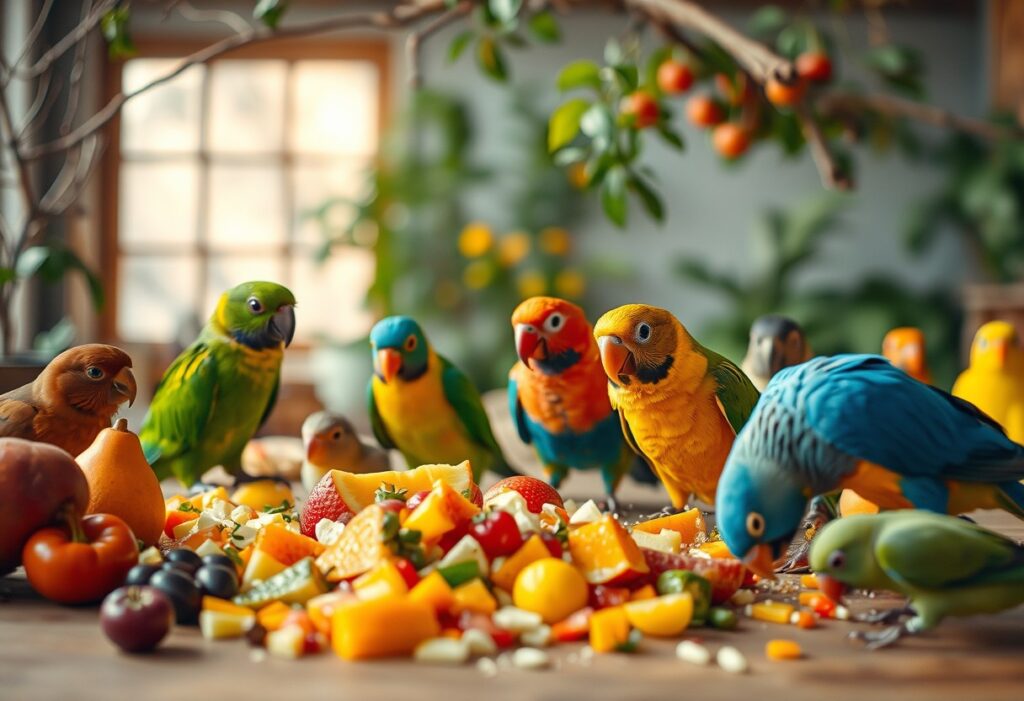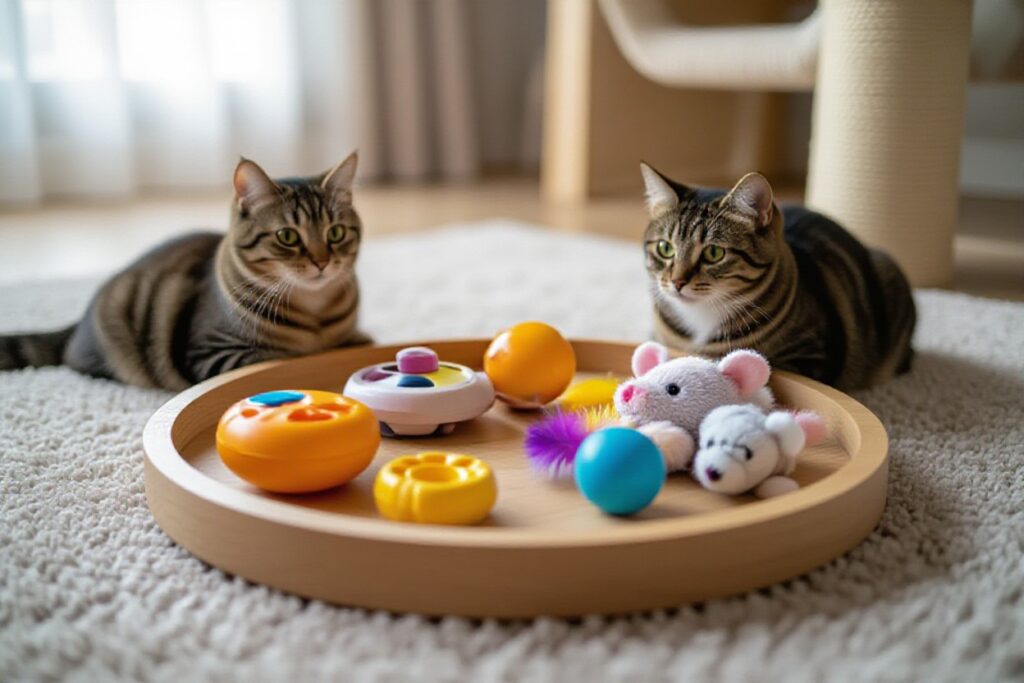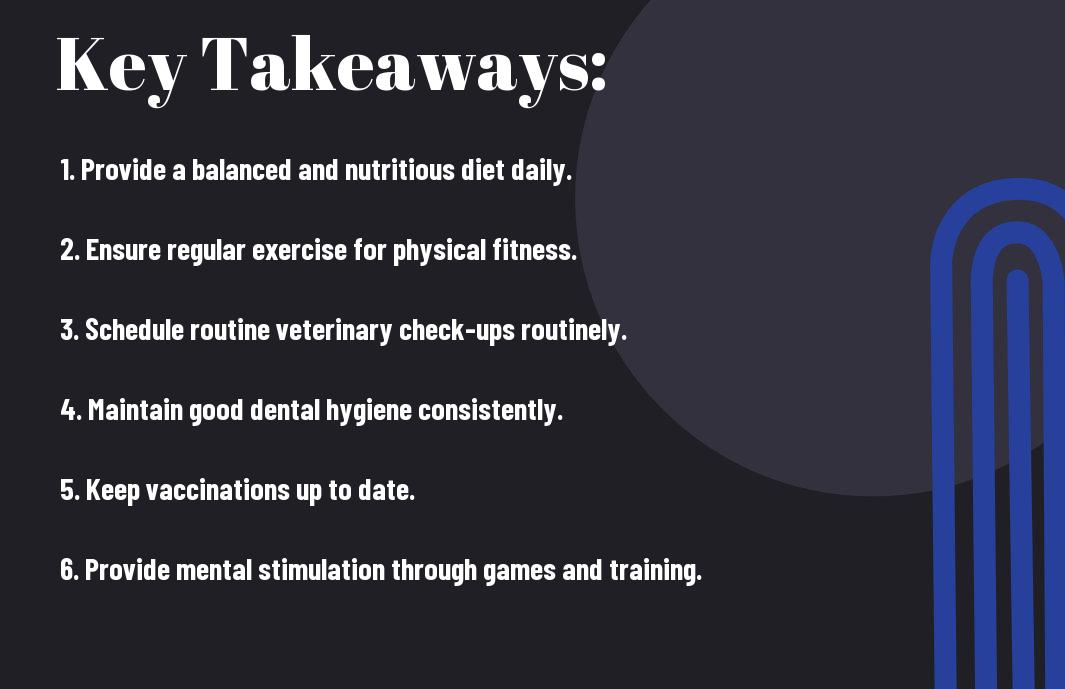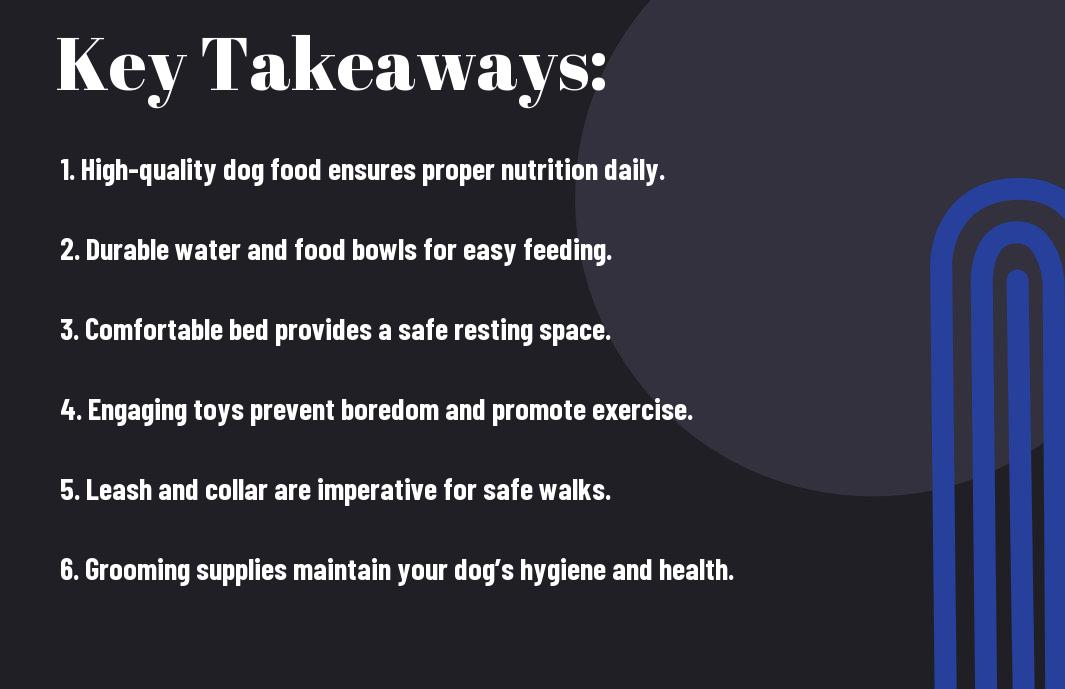There’s a growing movement among pet bird owners to incorporate foraging into their birds’ daily routines, and for good reason. This natural behavior not only provides mental stimulation but also mimics wild feeding practices that can lead to improved physical health. By allowing your pet bird to search for food, you help to prevent boredom-related issues and encourage natural instincts. Embracing foraging can create a happier, healthier environment for your feathered friend while enhancing your bond through interactive activities.
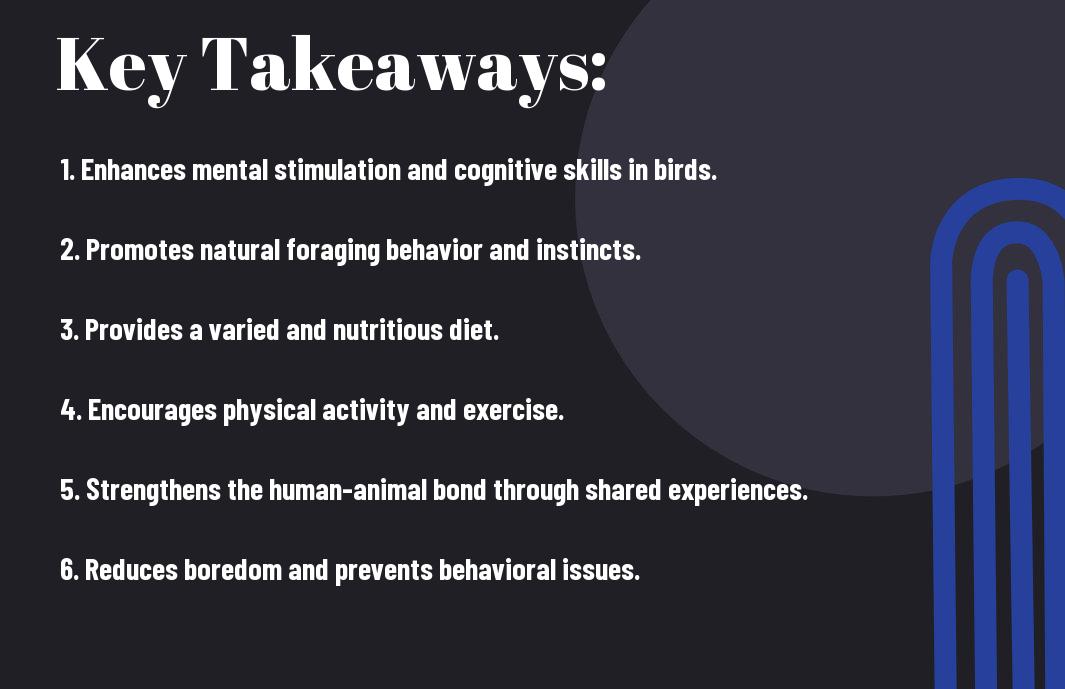
Understanding Foraging
Your pet bird’s health and happiness can significantly improve through an activity known as foraging. This natural behavior involves searching for and obtaining food, which can enrich their lives and stimulate their minds. By understanding foraging, you can create a more engaging environment that aligns with your bird’s instincts and needs.
Definition of Foraging
One of the primary definitions of foraging is the act of searching widely for food resources. For birds, this means utilizing their beaks and feet to explore their environment for seeds, fruits, nuts, and other edible items. In the wild, foraging encompasses a variety of methods such as digging, pecking, and using problem-solving skills to access food. This complex behavior is not just about feeding; it involves mental and physical challenges that are crucial for their overall well-being.
For pet birds, foraging can be facilitated through toys and activities that mimic these natural behaviors. By offering treats hidden within different textures and materials, you can replicate the foraging experience that birds would encounter in their natural habitats. Encouraging this instinctive behavior can help keep your bird engaged and mentally stimulated.
Natural Instincts of Pet Birds
To fully appreciate the benefits of foraging, it’s important to recognize that pet birds possess natural instincts cultivated over thousands of years. In the wild, birds spend a significant part of their day foraging for food. This behavior ensures not only their survival but also promotes physical health through activity and mental stimulation as they navigate their environment. As a pet owner, understanding these innate behaviors can help you provide an enriching environment that satisfies your bird’s needs.
To harness these instincts, you can create foraging opportunities within your own home. Birds enjoy challenges, and by providing them with puzzles or toys that require effort to access treats, you encourage their natural behaviors. This not only satisfies their instinctual drive to forage but also helps prevent boredom, which can lead to potential behavioral issues.
Foraging activities also cater to the cognitive and physical development of your bird. Engaging your pet in this way can reduce stress and promote a sense of security as they tap into their natural instincts.
Importance of Environmental Enrichment
To foster a healthy and fulfilling life for your pet bird, environmental enrichment is crucial. This concept involves creating a stimulating environment that encourages exploration and interaction. Foraging is a key component of this, as it incorporates various activities that birds would engage in naturally. By offering an array of foraging opportunities, you’re providing important stimulation that can lead to a more balanced and happy bird.
When your bird’s environment lacks enrichment, they may become disinterested and develop destructive behaviors or health problems related to inactivity. Thus, it’s vital to turn your home into a dynamic space where your bird can happily explore and forage, mimicking their wild counterparts. This not only improves their quality of life but also enhances the relationship you share with your feathered friend.
Environmental enrichment is not merely a luxury for your pet bird; it is a necessity that contributes to their emotional and physical well-being. By implementing foraging activities, you are investing in their long-term health and happiness.
Nutritional Benefits of Foraging
Even in a world where pre-packaged bird food seems convenient, the nutritional benefits of foraging for your pet bird can transform their diet into a diverse and enriching experience. When your feathered friend has the opportunity to forage, they are not only engaging in a natural behavior that promotes physical health but also receiving a wide range of nutrients from fresh, whole foods. Unlike commercial bird diets, which often have limited diversity, foraging allows you to offer your bird a buffet of fruits, vegetables, seeds, and nuts, which can all be tailored to meet their specific nutritional needs.
Variety in Diet
For your pet bird, having a varied diet is crucial for their overall well-being. Foraging encourages exploration and play, ultimately leading to a more enriched life. By introducing various foods, you can ensure that your pet receives vital vitamins and minerals that are often lacking in a regular seed-based diet. This variety not only satisfies their palate but can also help in preventing common nutritional deficiencies.
Moreover, with the many different textures and flavors available through foraging, you can stimulate your bird’s natural instincts. When you allow your bird to forage for their food, you’re not just providing nourishment but also promoting a sense of fulfillment and joy in their daily routine. The act of foraging mimics their natural behavior in the wild, which can lead to improved mental health and overall happiness.
Reducing Obesity Risks
Variety in foraged foods is also a significant factor in reducing obesity risks in pet birds. By allowing your bird to forage for fresh foods, you provide them with not only a pleasurable activity but also the means to consume lower-calorie, nutrient-dense options. This encourages your bird to expend energy searching for and consuming these foods, fostering a more active and healthier lifestyle.
Foraging can significantly decrease the likelihood of your pet bird becoming overweight or developing obesity-related health issues, such as heart disease or fatty liver disease. When your bird engages with their food, they are less likely to mindlessly eat and more inclined to eat what is suitable for their body. This self-regulated behavior reinforces their natural instincts and ensures that they remain fit and healthy.
Enhancing Digestive Health
Risks associated with a stagnant diet, such as digestive issues, can be mitigated through foraging. When you provide a range of foods, your bird’s digestive system benefits from increased fiber, which is vital for proper gut health. Different textures and types of food promote effective chewing and processing, ensuring that your bird’s digestive tract stays active and functioning well.
Foraging introduces a variety of natural enzymes and probiotics present in fresh fruits and vegetables, further enhancing digestive health. This not only aids in nutrient absorption but also helps in preventing conditions like gastrointestinal stasis, which can be life-threatening. By ensuring that your feathered companion has the chance to forage, you are playing a proactive role in maintaining their long-term digestive health.
Digestive health is critical in your pet bird’s overall wellness, and foraging plays a key role in achieving this. The movement and variety involved in foraging ensure that your bird not only receives proper nutrition but also maintains a healthy gut, which is vital for their vitality and longevity.
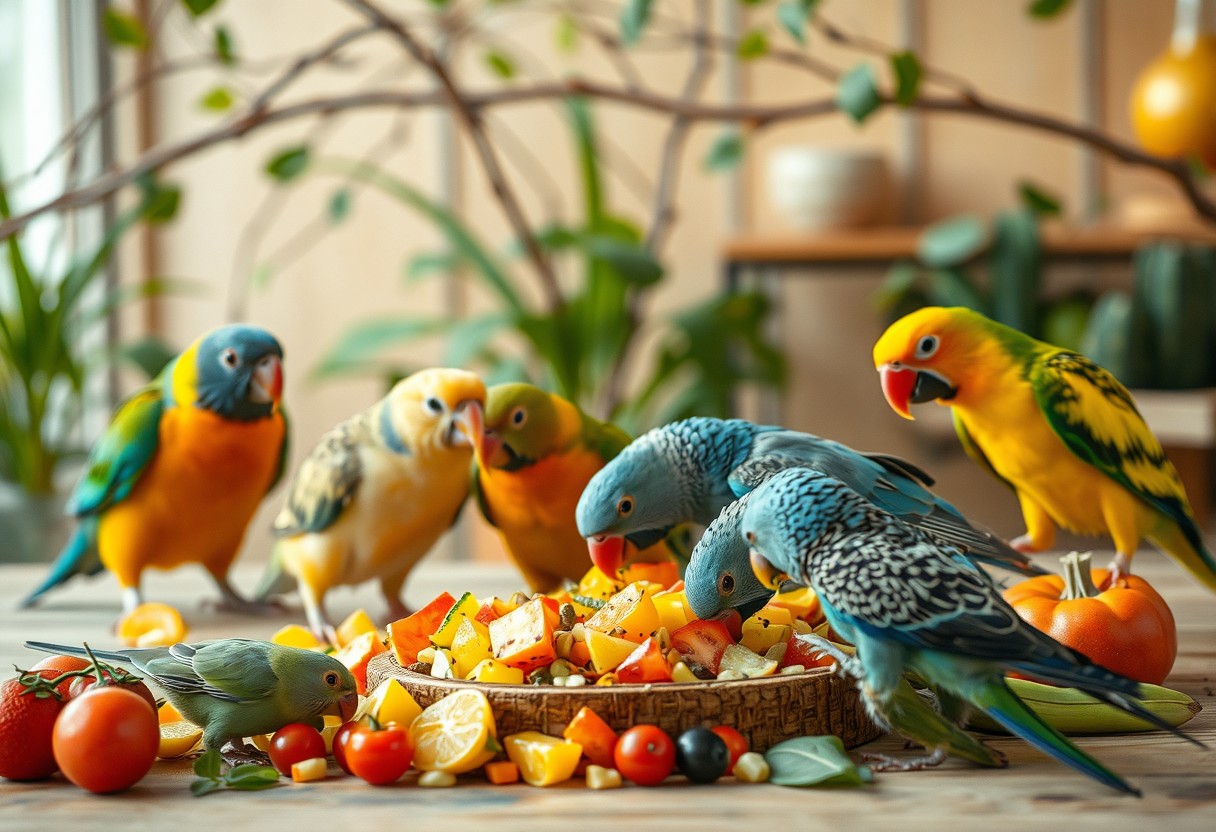
Behavioral Advantages
For pet birds, engaging in foraging activities can have profound behavioral advantages that contribute to their overall well-being. By encouraging your feathered friend to seek out food naturally, you replicate aspects of their wild environment, which keeps them mentally and physically stimulated. This mimicking of natural behavior is vital for birds, as it not only keeps them entertained but also fosters a deeper bond between you and your pet as you participate in this enriching experience together.
Stimulating Mental Activity
Advantages of foraging include significant stimulation of mental activity, which is crucial for your pet bird’s cognitive health. When you provide opportunities for your bird to search for and retrieve food, you challenge their problem-solving skills and encourage exploration. Birds are intelligent creatures that thrive on mental challenges; thus, incorporating foraging routines into their daily lives can help prevent cognitive decline associated with boredom. Engaging your bird in foraging not only enriches their environment but also allows you to observe their natural and instinctual behaviors, enhancing your understanding of their needs.
The act of foraging can serve to improve your bird’s overall well-being by keeping them engaged both mentally and physically. You will likely notice an increase in playful behavior as your pet learns how to navigate the challenges you create, which keeps their mind sharp and focused. By implementing different types of enrichment for foraging—such as hiding treats in toys or creating your own foraging boards—you add variety and excitement to your bird’s routine.
Reducing Stress and Boredom
The incorporation of foraging behaviors into your bird’s daily life is an effective method for reducing stress and boredom. When birds are left without stimulation, they may exhibit signs of distress, including excessive vocalization or feather plucking. By devising foraging activities, you help alleviate these issues as your pet becomes absorbed in the search for food. This distraction not only keeps their minds occupied but also contributes to a calming and entertaining atmosphere.
Stress in birds often leads to detrimental behaviors, so providing ample opportunities for positive foraging experiences is crucial. You can achieve this by varying the complexity of foraging tasks to match your bird’s skills and interests. By allowing them to engage their natural instincts, you foster a sense of achievement and satisfaction that is crucial for their emotional well-being.
Promoting Natural Behaviors
Stimulating foraging activities can promote natural behaviors that your pet bird would typically demonstrate in the wild. In their natural habitat, birds spend a significant portion of their day seeking out food, which not only sustains them but also drives social interactions and exploration. By mimicking these behaviors within a controlled environment, you cater to your bird’s innate instincts, allowing them to thrive both mentally and emotionally.
Mental and physical engagement through foraging is not just a fun activity; it mimics the natural behavior of your bird. By creating a setup that encourages your pet to forage, such as using puzzle feeders or scattering food in their cage, you promote behavioral traits consistent with their species. Furthermore, as your pet bird engages in these activities, you may find they are less prone to engage in negative behaviors, ultimately leading to a happier and healthier companion.
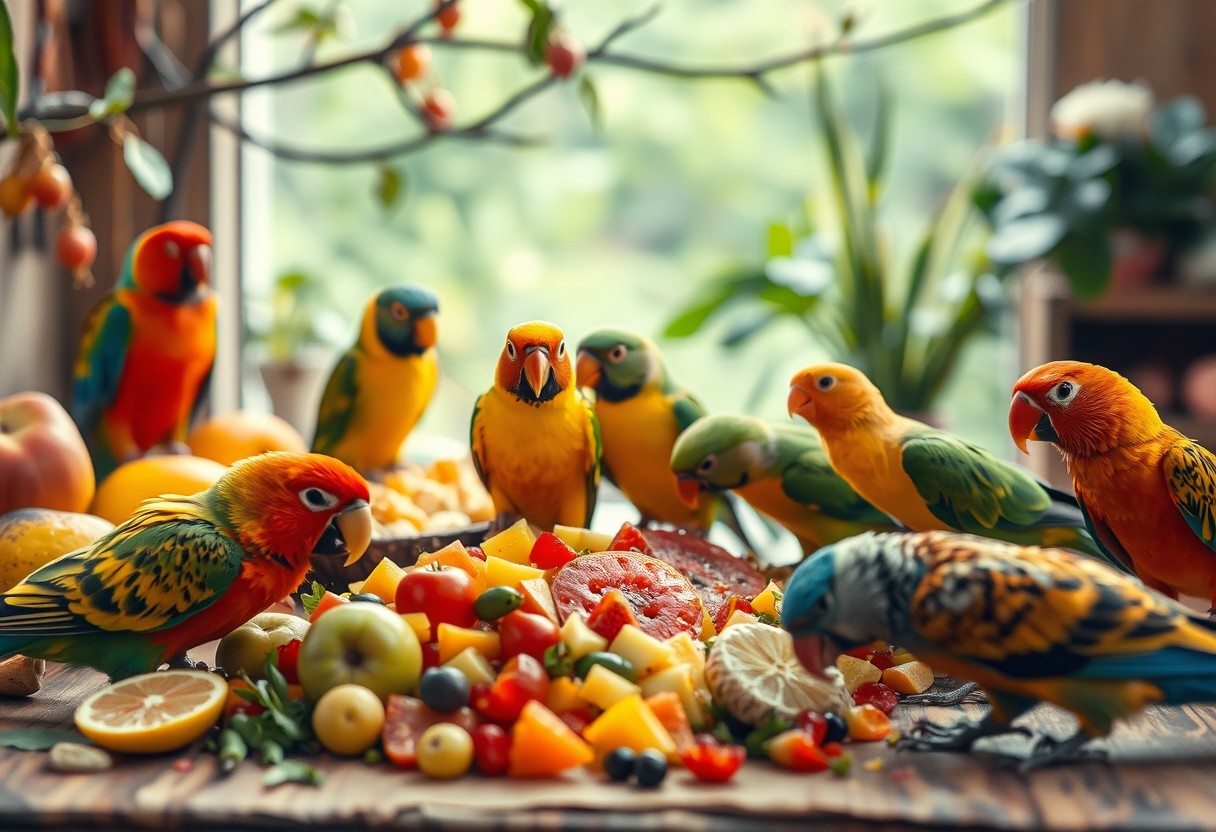
Practical Tips for Implementing Foraging
Keep in mind that foraging is not just a fun activity for your pet birds; it also offers imperative mental stimulation and promotes natural behaviors. To successfully implement foraging into your pet birds’ routine, consider the following practical tips:
- Start with simple food items and gradually increase complexity.
- Use a variety of textures and shapes to keep your birds interested.
- Rotate toys and foraging setups to prevent boredom.
- Monitor your birds’ behavior and adjust foraging challenges accordingly.
- Incorporate foraging into their daily routine to make it a natural part of their lives.
Creating Foraging Opportunities at Home
Implementing foraging opportunities in your home can be a delightful and engaging activity for your feathered friends. Start by placing food rewards in places they need to work a little to reach, such as inside crumpled paper, hidden in grass or herb pots, or in cardboard tubes. You can also scatter small pieces of food across their play area, encouraging them to engage in their natural instinct to search for and discover their meals.
Another effective method is to use various containers and boxes to create a scavenger hunt. This not only makes foraging fun but also mimics the natural behaviors of your birds. Keep in mind that frequent changes in the layout and foraging setups will keep your birds intrigued and eager to explore.
Recommended Foraging Toys
Tips for selecting the right foraging toys can make all the difference in maintaining your birds’ interest. Look for toys specifically designed for foraging that provide different levels of difficulty, allowing your birds to challenge themselves as they become more adept at foraging. Consider those that incorporate hidden compartments or that require manipulation to reveal the rewards within. These features can enhance your birds’ mental stimulation significantly.
Understanding your birds’ preferences is crucial when selecting foraging toys. Monitor what types of toys they engage with the most and vary them to keep the foraging experience fresh and exciting. You may also consider DIY options, such as papier-mâché balls stuffed with treats, which can provide affordable yet stimulating foraging opportunities.
Safety Considerations in Foraging
With foraging being an enriching activity, it’s imperative to prioritize safety to ensure your birds’ well-being during the process. Always choose non-toxic materials for toys and foraging setups. Avoid any substances that can be harmful to birds, such as plastic, treated woods, or synthetic fibers that they may ingest.
In addition, ensure that any food items used for foraging are safe for your specific bird species. Some human foods can be dangerous to birds, leading to serious health issues. Always do thorough research and consult with a veterinarian if you are uncertain about specific items. The more informed you are, the more beneficial the foraging experience will be for your feathered companions.
The safety of your pet birds during foraging is paramount. Always supervise them while they interact with new toys and setups to prevent any potential accidents. By creating a safe environment, you significantly enhance the positive impact of foraging on your birds’ mental and physical health.
Final Words
Summing up, foraging for your pet birds offers numerous benefits that contribute to their overall health and well-being. By providing an environment that encourages natural foraging behaviors, you not only stimulate their minds but also promote physical activity. This can lead to improved mental health, emotional stability, and reduced behavioral issues, all of which create a happier and healthier bird. Moreover, the diverse and varied diet you can offer through foraging allows for better nutrition, ultimately enhancing your bird’s lifespan and quality of life.
Incorporating foraging into your daily routine not only enriches your pet’s life but also deepens the bond you share. As you observe them engaging in foraging activities and exhibiting their natural instincts, you may also discover new aspects of their personality. By taking the initiative to explore and implement foraging opportunities, you’re making a significant investment in your bird’s physical and psychological well-being. So, gather materials and get creative—your feathered companion will benefit in more ways than you can imagine!
FAQ
Q: What are the nutritional benefits of foraging for pet birds?
A: Foraging for pet birds offers numerous nutritional benefits. It encourages a varied diet, allowing birds to explore different textures, colors, and flavors that they might not experience with a standard seed mix. By incorporating natural vegetation, fruits, nuts, and insects found during foraging, pet birds can receive vital vitamins, minerals, and antioxidants that contribute to their overall health. This practice can also mimic their natural feeding behaviors, reducing the risk of obesity and related health problems.
Q: How does foraging contribute to a pet bird’s mental stimulation?
A: Foraging plays a crucial role in providing mental stimulation for pet birds. It mimics the challenges they face in the wild, where searching for food and solving problems to access it is a daily activity. Engaging in foraging activities can prevent boredom, reduce stress levels, and decrease the likelihood of developing behavioral issues such as feather plucking or excessive squawking. Offering foraging toys or hidden treats encourages birds to think critically and remain active, leading to a happier, healthier pet.
Q: Can foraging strengthen the bond between pet birds and their owners?
A: Yes, foraging can significantly strengthen the bond between pet birds and their owners. When owners participate in foraging activities, such as hiding treats or creating foraging challenges, it creates opportunities for them to interact and engage with their birds. This shared experience fosters trust and enhances the pet-owner relationship. Furthermore, observing their birds’ natural foraging behaviors can increase owners’ appreciation for their feathered companions, leading to more enriching and enjoyable interactions.
